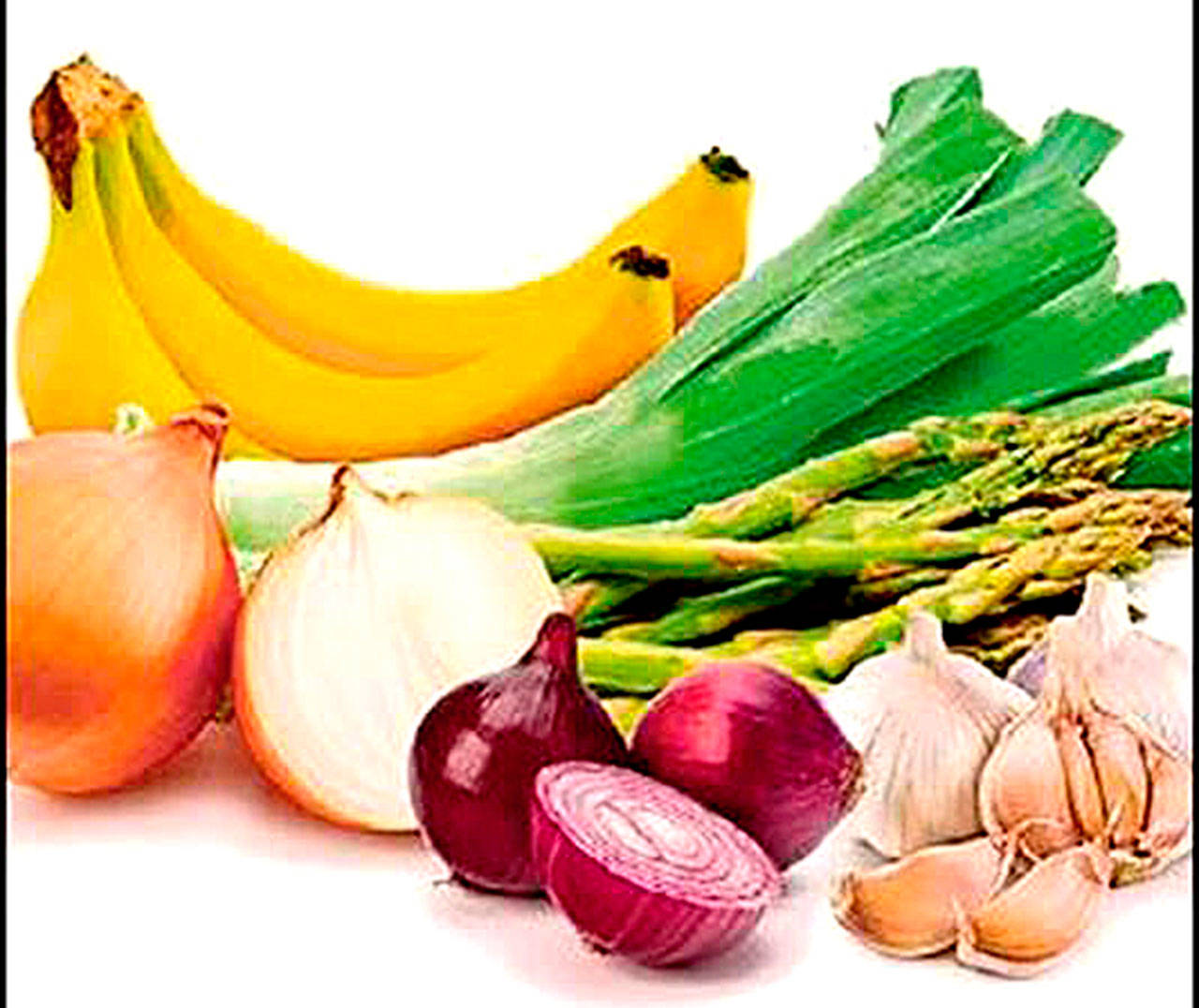In my last column, I reviewed the science and the benefits related to eating strains of live bacterial cultures called probiotics. Today, I’ll explore why and how prebiotics play a key role in keeping your gut microbiome healthy.
Prebiotics are foods or ingredients in foods that increase the growth or activity of healthy bacteria that live in our intestines. They usually are carbohydrates that contain fiber that is not digested until it gets to the colon. Simply put, they are the “food” that beneficial bacteria feed.
Fruits, vegetables, whole grains and other plant foods are essential for keeping your gut microbes healthy. Prebiotic foods like these are broken down — actually fermented — by the gut microbes and used to produce end products, like butyrate. Butyrate is an energy source for cells in our colon. Butyrate helps maintain a healthy intestinal lining, helps regulate inflammation and protects against colon cancer. High-fiber diets promote the growth of butyrate-producing microbes.
Clinical studies show we can change our gut bacteria profile by changing our diet. Reducing high animal fats and proteins and increasing plant fiber and plant proteins can improve bacterial composition, which can protect against colon cancer.
Changes to the development or composition of the gut microbiome directly affect the immune system and may be a driving force in most chronic inflammatory diseases.
Other studies report associate certain diets that include nuts, fruits and vegetables and specific bacterial strains with better quality of life, lower triglycerides and improved high-density lipoprotein (HDL) cholesterol. Probiotics have other beneficial effects such as increasing calcium and mineral absorption and increasing the bulk of stools, which shortens transit time through the intestines.
Which foods are important for promoting such benefits? Onions, bananas, garlic, leeks, artichokes, lentils, potatoes, beans, peas, oatmeal, chicory root (inulin), psyllium, asparagus, nuts and many other plant foods. Plant foods contain oligosaccharides (a type of indigestible fiber) and they have been found to be the primary source of fermentation in the gut.
So to provide the gut with healthy bacteria, it’s essential to eat prebiotic foods that will feed those bacteria so they grow and multiply. Focus on food to nourish your gut microbiome and keep it healthy.
Future research will shed light on further potential benefits from pre- and probiotics related to disease prevention.
This column is for your information and is not intended as medical advice.
Kim Larson is a registered dietitian nutritionist, founder of Total Health, www.totalhealthrd.com, and a spokesperson for the Academy of Nutrition &Dietetics.
Talk to us
> Give us your news tips.
> Send us a letter to the editor.
> More Herald contact information.

























